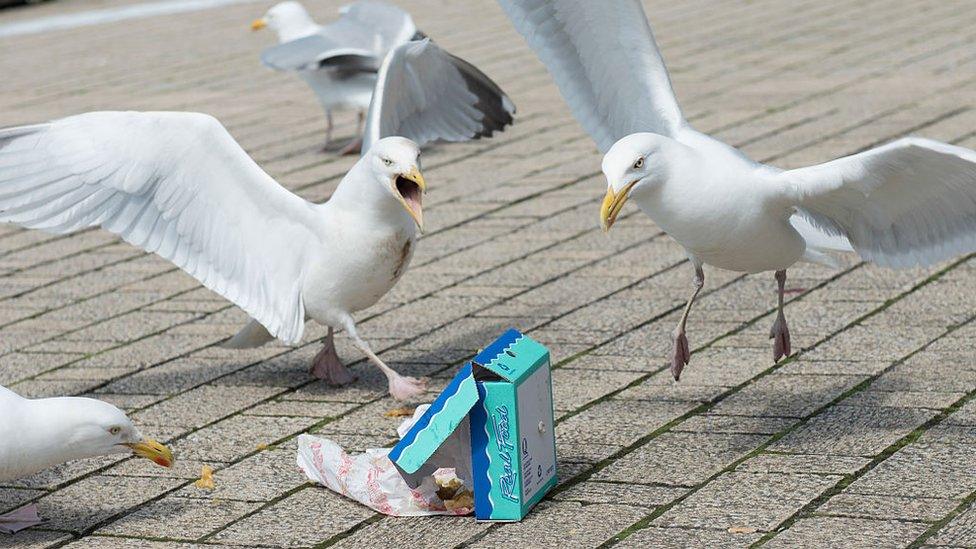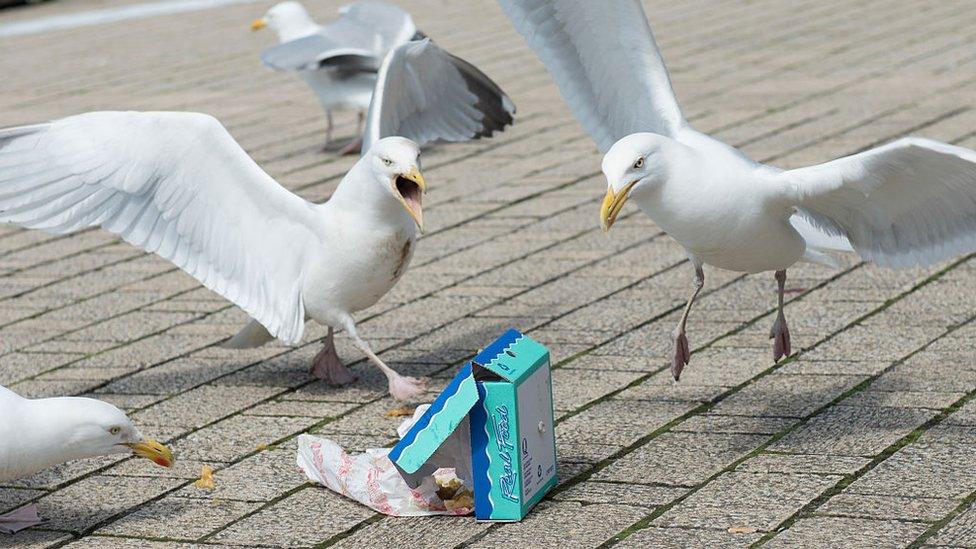Rhyl seagull reduction scheme abandoned amid opposition
- Published

Some regard seagulls as a pest but they are protected
A £20,000 scheme to reduce the number of seagulls in a town where they have been accused of attacking people has been abandoned.
The Rhyl Business Improvement District, external provided the cash three years ago to target gull eggs before they reached the embryo stage.
They had believed this would help control the population without harming or culling the birds.
But it ended plans after opposition from animal rights campaigners.
"What you have to realise is there is a lobby of people who really care about seagulls, and they will get pretty upset if you start talking about [reducing the numbers], but there are two sides to the debate," said councillor Brian Jones, who is involved in the business-led partnership.
"There are people who love seagulls. Before Covid, the Rhyl Business Improvement District carried out an exercise and came up with a project in which you could control the breeding of seagulls.
"There are probably somewhere in the region of 500 nesting sites in Rhyl and the immediate area, and there was a legal solution, a liquid solution you can paint on eggs when they have only just been laid, so you are not killing anything, as the embryo hasn't formed, and you can control the breeding."
He said 500 pairs of gulls would create 1,000 chicks "two or three times a year", adding: "That's where your big problem comes from. Where we are now, the breeding season is well under way."
"The parents are looking for food and swooping or diving in as people are coming out of shops," he told the Local Democracy Reporting Service.
'Flying rats'
One Rhyl resident, who asked not to be named, said there were too many gulls in Rhyl, Denbighshire and neighbouring Kinmel Bay in Conwy.
He said: "They are like flying rats. I saw one swoop down and take an ice cream from a child in a pram."
All wild birds, their nests, and their eggs are protected under section one of the Wildlife and Countryside Act 1981, external.
It is an offence to intentionally or recklessly kill, injure, harm, or interfere with nests. Despite the law, there are special licences available under the act in which exceptions can be made.
Denbighshire and Conwy councils have been approached for comment.
- Published22 August 2011
- Published31 January 2020
